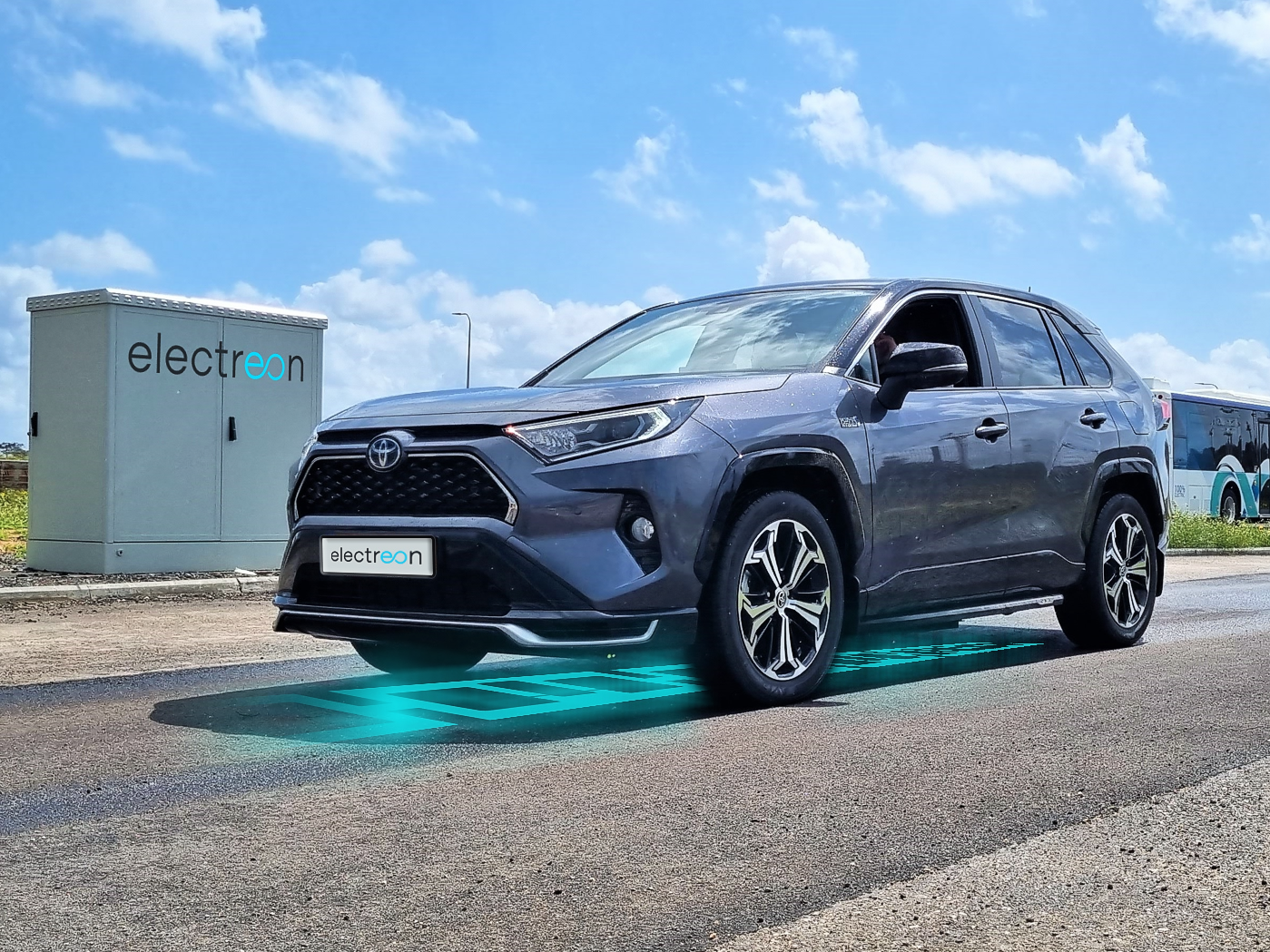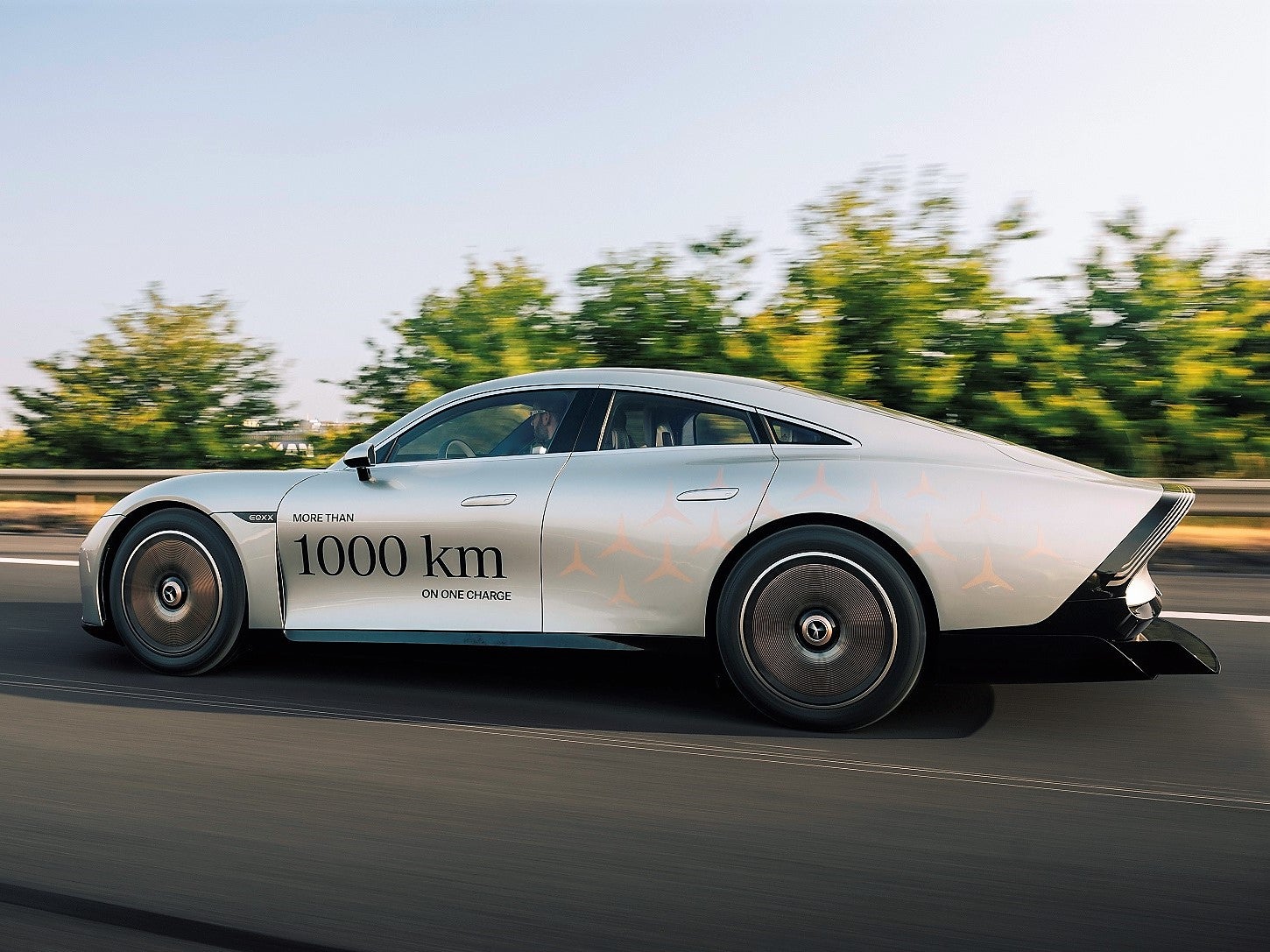Electric car drives for 100 hours non-stop on futuristic road
The 100-hour drive of a Toyota RAV4 is a new world record, startup says

Your support helps us to tell the story
From reproductive rights to climate change to Big Tech, The Independent is on the ground when the story is developing. Whether it's investigating the financials of Elon Musk's pro-Trump PAC or producing our latest documentary, 'The A Word', which shines a light on the American women fighting for reproductive rights, we know how important it is to parse out the facts from the messaging.
At such a critical moment in US history, we need reporters on the ground. Your donation allows us to keep sending journalists to speak to both sides of the story.
The Independent is trusted by Americans across the entire political spectrum. And unlike many other quality news outlets, we choose not to lock Americans out of our reporting and analysis with paywalls. We believe quality journalism should be available to everyone, paid for by those who can afford it.
Your support makes all the difference.An electric car has driven nearly 2,000km (1,250 miles) without stopping to charge as part of a demonstration of an electric road that wirelessly charges vehicles as they drive.
Israeli startup Electreon claims the achievement is a new world record for the longest time and distance ever driven non-stop by a passenger electric vehicle (EV), taking just over 100 hours to cover 1,942 kilometres.
The stunt was completed using a specially adapted Toyota RAV4, which drove in circles around a track fitted with Electreon’s Wireless Electric Road technology.
The startup claims its tech can solve some of the fundamental challenges facing widespread EV adoption, including range anxiety, slow charge times and battery size.
“The objective of this 100-hour non-stop driving rally was to demonstrate the unlimited technical potential of Wireless Electric Road technology to power EVs to drive indefinitely with a minimal battery,” said Reuven Rivlin, Electreon’s honorary president.
“This is yet another clear signal that our Wireless Electric Road technology is ready for large-scale commercial projects globally.”
The five-day drive involved 56 different drivers, with the vehicle only pausing momentarily to switch between drivers.
Electreon plans to develop its wireless charging technology for vehicles alongside Toyota, having signed an agreement with the Japanese automotive giant in March.
“This partnership will make wireless charging accessible to a diverse and wide range of drivers, and will demonstrate the many benefits of wireless charging as a cost-effective, clean solution for charging EVs, as well as a catalyst in reducing EVs’ carbon footprint,” Electreon chief executive Oren Ezer said at the time.
Top-of-the-range electric vehicles in production currently have a range of just over 500km, though some prototypes have already passed the 1,000km mark.
Last year, an electric Mercedes drove from Germany to the UK on a single charge, covering more than 1,200km.

The Vision EQXX completed the record-breaking journey in just 15 hours, using a battery that has the same capacity as a Tesla Model S.
The state-of-the-art is unlikely to ever go into mass production due to the costs of making it, however recent advances in battery technology could see the range of commercial electric vehicles rise significantly in the near future.
A China-based battery startup announced earlier this month that it was aiming to become the first company in the world to mass produce electric vehicle batteries with a range of 1,000km thanks to an innovative lithium-manganese-iron-phosphate design.
Other companies are also working on electrified roads for wireless or conductive charging, with Sweden unveiling plans to build around 3,000km of electric road by 2045.


Join our commenting forum
Join thought-provoking conversations, follow other Independent readers and see their replies
Comments